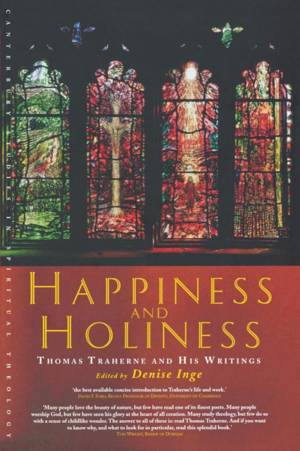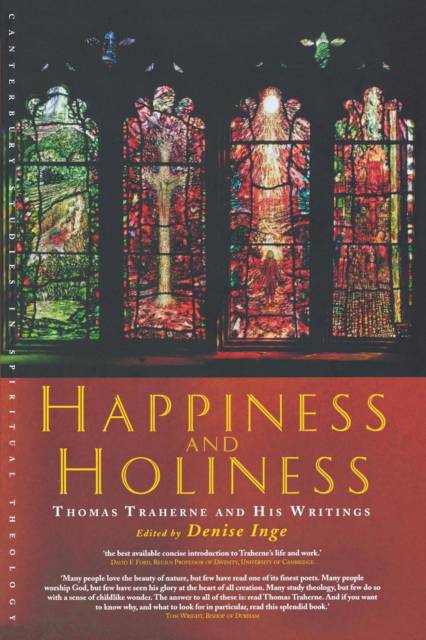
- Retrait gratuit dans votre magasin Club
- 7.000.000 titres dans notre catalogue
- Payer en toute sécurité
- Toujours un magasin près de chez vous
- Retrait gratuit dans votre magasin Club
- 7.000.0000 titres dans notre catalogue
- Payer en toute sécurité
- Toujours un magasin près de chez vous
Happiness and Holiness
Selected Writings of Thomas Traherne
27,95 €
+ 55 points
Description
The 17th century writer Thomas Traherne is increasingly being recognised and studied as a theologian as well as a poet. The discovery, in 1997, announced by the author of this volume, of five new prose works and a poetic work has given huge impetus to the study of Traherne in literature and theology. This affordable, concise introduction to Traherne's life and work concerns Traherne primarily as a theologian and places him in an historical and intellectual context he has thus far lacked. It demonstrates his distinctive contribution to Anglican theology. Consisting of a 10,000 word introductory essay and biography it is followed by extracts from Traherne's work under the following headings: Creatures and Powers, Holiness and Happiness, Sin and Salvation, Christian Liberty, Advice on Ministry, and Prayers.
Spécifications
Parties prenantes
- Editeur:
Contenu
- Nombre de pages :
- 322
- Langue:
- Anglais
- Collection :
Caractéristiques
- EAN:
- 9781853117893
- Date de parution :
- 01-09-08
- Format:
- Livre broché
- Format numérique:
- Trade paperback (VS)
- Dimensions :
- 152 mm x 229 mm
- Poids :
- 430 g

Les avis
Nous publions uniquement les avis qui respectent les conditions requises. Consultez nos conditions pour les avis.





